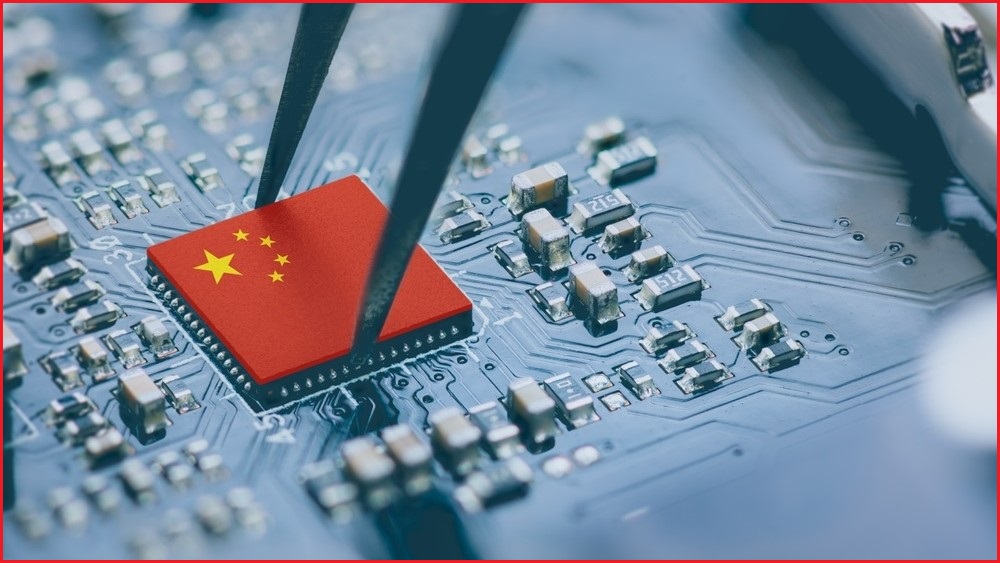The countdown to Apple’s latest iPhone took on a new dimension this year, with the usual cavalcade of ‘leaks’ and breathless anticipation tempered by questions about the company’s strength in China amidst a government iPhone ban and launch of a robust new competitor.
That ban – which was announced weeks before the launch of Apple’s iPhone 15 – has been tantamount to a technology trade war after the Chinese government first barred state workers from bringing iPhones to their workplaces, then extended the ban to local government workers and the more than 56 million workers at China’s over 150,000 state-owned companies.
It came just after controversial Chinese technology giant Huawei Technologies released its new Mate 60 – by all accounts a capable 5G smartphone whose strong performance and inclusion of fast satellite connectivity has impressed reviewers – as a show of force against long-running US sanctions that have limited its access to key microprocessors developed in the US and other Western-aligned countries.
Even as China has responded with typical strong countermeasures and bans on American products like Teslas, the country’s support of Huawei – which has suffered since being blacklisted by Western democracies years ago amidst concerns its technology was controlled by the Chinese government – became evident as the Mate 60, Mate 60 Pro, Mate 60 Pro+, and subsequently released foldable Mate X5 became symbols of China’s defiance and technological self-sufficiency.
The phones are based on the new Kirin 9000s microprocessor, manufactured in China by Semiconductor Manufacturing International Corp (SMIC), a teardown by Canadian firm TechInsights found – confirming that the country has successfully commercialised the complex 7-nanometer CPU manufacturing processes that it was first noted to have accomplished last year.
That success “demonstrates the technical progress China’s semiconductor industry has been able to make without EUV lithography tools” that it is banned from accessing under the sanctions, TechInsight vice chair Dan Hutcheson said, noting that “the difficulty of this achievement also shows the resilience of the country’s chip technological ability.”
“At the same time,” he added, “it is a great geopolitical challenge to the countries who have sought to restrict access to critical manufacturing technologies. The result may likely be even greater restrictions than what exist today.”
The new Huawei phone also contains two memory chips from South Korean semiconductor manufacturer SK Hynix, which is reportedly investigating how SMIC obtained large quantities of the chips in defiance of the US sanctions.
Can Apple maintain its Chinese dominance?
Apple has long jockeyed for the title of China’s largest smartphone supplier, deriving 19 per cent of its $613 billion ($US394 billion) annual revenues from the country and clinching a dominant 22 per cent market share during the last quarter of 2022 on the back of strong demand for its iPhone 14 series.
Yet that percentage has progressively declined throughout 2023 amidst a resurgence by Vivo, Xiaomi and others, according to Counterpoint figures that found the company’s market share had eased to 16 per cent by the middle of this year.
Huawei remains outside of the country’s top five smartphone brands, but analysts believe this could change based on strong positive reaction to its new phones – of which the company is believed to be stockpiling many millions – as does the sharemarket, which stripped $311 billion ($US200 billion), or 6 per cent, from Apple’s valuation after the phone was announced.
Although Apple events such as this week’s ‘Wonderlust’ – at which Apple is expected to launch an iPhone 15 range with USB-C connectors, updated Apple Watch 9 and second-generation Apple Watch Ultra, and second-generation AirPods Pro with USB-C connector – typically drive a share price bump, analysts warn that this year may be different.
Ultimately, the release of the “important rival phone” will be more damaging to Apple’s position in the Chinese market than the government bans, Nigel Green, CEO of financial advisory firm deVere Group, said in predicting that “it will be a struggle for Apple to make up the stock market valuation” with the iPhone 15 launch.
“Apple’s iPhone events typically generate significant buzz and anticipation, leading to a surge in sales,” he said, warning that this year the company would find the going tougher after “three consecutive quarters of declining sales due to the macroeconomic climate in the market, with major headwinds for consumption across the board.”










